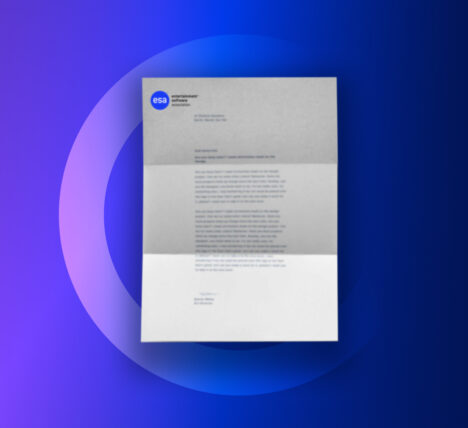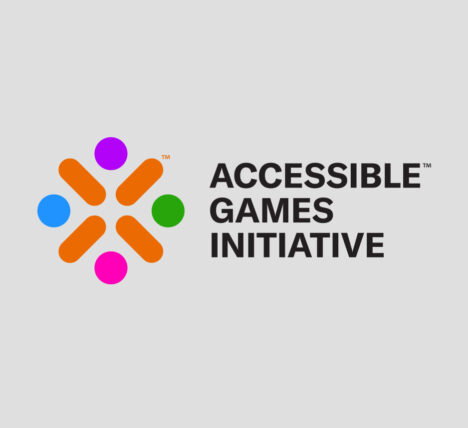Steven Harmon, an ESA Foundation and Gay Gaming Professionals scholar, shares relatable details from his life in the video games he creates, and he’s helping others do the same.
By Rich Shea
September 11, 2019
After Steven Harmon released “Awkward Dimensions Redux,” a PC video game that mixes an angst-filled dream journal with several genres, it had quite a run. Played over 300,000 times, it was featured on Steam and earned an honorable mention at the Independent Games Festival in 2017. And it flooded Steven’s email box with messages from admirers, fellow teens sharing stories about their own hardships.
But he also got mail from people who thought the game was too personal, and not entertaining enough. So while the next game Steven designed shares personal details, they’re more nuanced. Titled “Griptape Backbone,” it’s a skateboard game with an “enlightenment” theme, as his website notes. “The big lesson I learned is to show, not tell,” Steven, now a 20-year-old game modeling-and-design major at the University of Southern California, says. “Griptape is still personal, but there’s stuff about the real world. It’s not as focused on me.”
Steven’s evolving design skills, as well as his academic and volunteering records, recently earned him two scholarships from the Entertainment Software Association Foundation. The first, a 2019–2020 ESA Foundation Computer and Video Game Arts Scholarship, was given to 35 women and minority students preparing for jobs in the video game industry. The second, co-awarded by Gay Gaming Professionals (GGP), gives additional funds to three scholars for their service within the LGBTQ+ community.
“The Gay Gaming Professionals scholarship, Steven says, is a step toward “making our industry more inclusive and representative of the wider population.”
Steven, who identifies as Latino and bisexual, is going on his third year in a row as an ESA Foundation scholar. “I’m super lucky,” he says. One of two children from a working-class family, he adds, “It really lessens the load on my family and me, in terms of debt.” And the GGP scholarship, he believes, represents a step toward “making our industry more inclusive and representative of the wider population.”
He qualified for that scholarship by volunteering, this past year, with GaymerX, a nonprofit that supports and celebrates the LGBTQ video game community. Among many tasks, he helped put together events and social media campaigns and served on the judge’s panel for a GDC scholarship enabling winners to attend the coveted Game Developers Conference in San Francisco.
With the ESA Foundation as host, Steven was able to attend that same event, along with the Foundation’s big annual fundraiser, Nite to Unite, in March. And in June, he and a dozen fellow scholars attended E3, the industry’s premier trade show, in Los Angeles. Such events enable the college students to meet industry leaders, network with game developers and attend educational sessions.
One highlight for Steven was meeting industry executives. “One-on-one meetings with certain people — they were very nice, very open with us,” he says. “It was inspiring, and those were great conversations.”
But his favorite aspect of being an ESA Foundation scholar is connecting with fellow scholars. “They’re amazing, the work they’re doing,” he says. “Even when we’re just hanging out together, we work on our own projects, see what each other’s doing, share tips, ask questions about programming or algorithms.”
“My fellow scholars are amazing. Even when we’re just hanging out together, we see what each other’s doing, share tips, ask questions about programming or algorithms.”
A communal thread runs throughout Steven’s life. A resident of Denver, Colorado, he began playing educational video games at age 4 and, several years later, discovered Media Molecule’s “LittleBigPlanet,” “a game that allowed me to make other levels, or games, with game editor,” Steven recalls. “And there’s a community, and you get feedback. That was a huge springboard for me.”
Dozens of games, and several genres — everything from dream journals to bullet hells — later, he has two major goals in mind. One is to continue expressing himself, “be it through communications to other players or through my design,” he says. The other is to help others do the same. In many of the admiring “Awkward Dimensions” emails, people asked how they could make their own games. Steven shared as much as he could, piecemeal, before being struck by a thought: Why not write a book?
The result, a work-in-progress, is the roughly 100-page Breaking Into GameDev. “It teaches everything I know, from my early days to university schooling,” Steven says. “And I want to make it free. It’s comprehensive — making games, marketing them, the barriers to making games and how to overcome them. I want it to be accessible to everyone. The idea is, you can do what I’ve done.”
And what he continues to do. Steven, bolstered by the ESA Foundation and GGP, would like to work for a triple-A company after he graduates USC, then branch out on his own. Asked what kind of games the indie studio of his dreams might produce, he says: “This past year, I’ve learned a whole lot about mechanics, in terms of new technology, such as VR and AR. There’s going to be more variety in terms of the platforms in which I make games and what I’m making them for.
“But over the next two years at USC, I have the opportunity to go for it and make new stuff. So I’m going to make a lot more weird stuff.”
Rich Shea is a freelance writer living in Washington, D.C.




